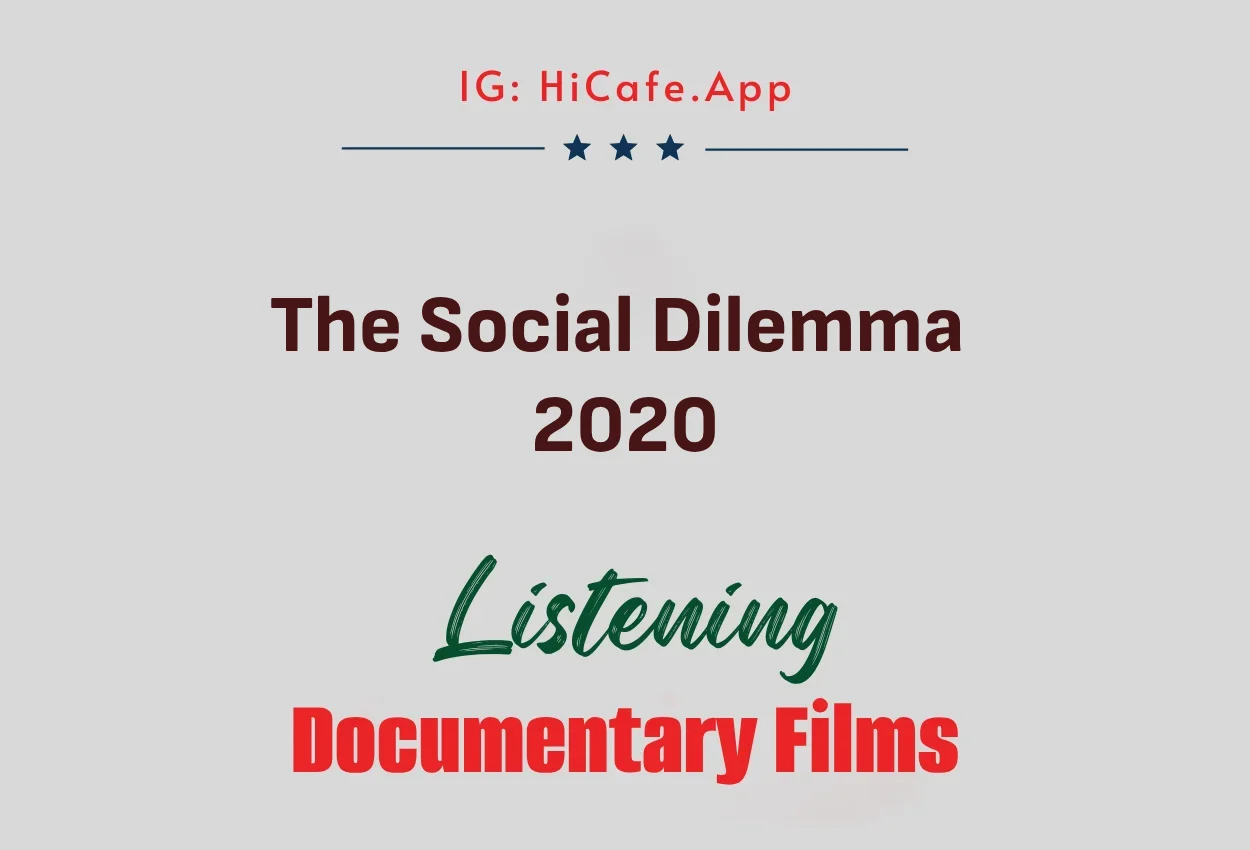This documentary-drama hybrid explores the dangerous human impact of social networking, with tech experts sounding the alarm on their own creations.
The social dilemma 2020 HD | Conspiracy documentary film directed by Jeff Orlowski-Yang | psychology, health, social, technology
Previous Film
English Documentary Film- Body Language Decoded 2017
Watch Documentary Film Now
YT
Documentary Film Info
The Social Dilemma is a 2020 American docudrama film directed by Jeff Orlowski and written by Orlowski, Davis Coombe, and Vickie Curtis. The documentary covers the negative social effects of social media and is interspersed by a dramatized narrative surrounding a family of five who are increasingly affected by problematic social media use.
Synopsis
The Social Dilemma covers the psychological underpinnings and manipulation techniques by which, it claims, social media and technology companies addict users. People’s online activity is watched, tracked, and measured by these companies, who then use this data to build artificial intelligence models that predict the actions of their users. Tristan Harris, former Google design ethicist and co-founder of the Center for Humane Technology, explains in the documentary that there are three main goals of tech companies:
- The engagement goal: to increase usage and make sure users continue scrolling.
- The growth goal: to ensure users are coming back and inviting friends, who invite even more friends.
- The advertisement goal: to make sure that while the above two goals are happening, the companies are also making as much money as possible from advertisements.
Harris summed this up with the warning: “If you’re not paying for the product, you are the product”, paraphrasing earlier insights from Television Delivers People, Tom Johnson, and Andrew Lewis.
Another interviewee, Jonathan Haidt, a social psychologist at NYU Stern School of Business, brings up the concerns of mental health in relation to social media.
The film also discusses the dangers of fake news. Harris argues that this is a “disinformation-for-profit business model” and that companies make more money by allowing “unregulated messages to reach anyone for the best price”.
In the end credits, the interviewees propose ways the audience can take action to fight back, such as turning off notifications, never accepting recommended videos on YouTube, using search engines that do not retain search history, and establishing rules in the house on cell phone usage.
Next Film
English Documentary Film- Capital in Twenty First Century 2019
Watch Films for English Listening Practice
HiCafe site has 1000+ movie related contents in 35+ genres for practicing English listening. Visit Improve English Listening Skills page to learn more.



